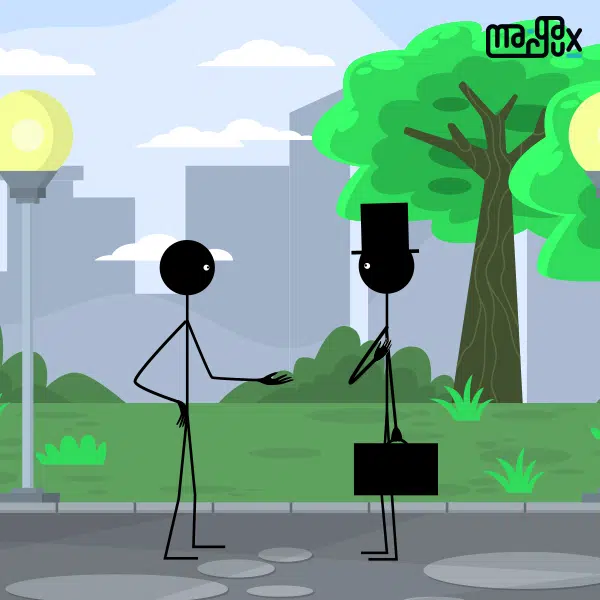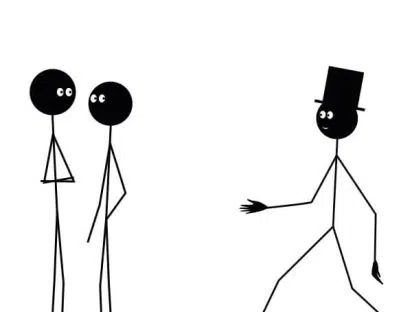Does Patagonia founder Yvon Chouinard’s decision to transfer ownership of his company to a non-profit nature conservation entity qualify him as a “good person?” On the basis of the information available to us, which goes beyond this one decision, significant as it is, this article considers two ways of answering this question in the affirmative. The first is based on the fidelity to reality, the sincerity and authenticity of the Patagonia founder’s views and commitments, and the second on the “projection” of the virtues linked to his passion, climbing, onto the values of Patagonia. We conclude by discussing how these two explanations relate to the common moral understanding of what it means to be a “good person.”

Amandine Lepoutre, president of the think tank Thinkers & Doers, calls on business leaders by giving Patagonia and its founder the status of a model: “Bosses, leaders, be inspired by Patagonia and by those who have sincere projects” (1). According to her, “the case ticks all the boxes of true sincerity,” which results in particular from the fact known to Patagonia’s customers that the company “was founded by a nature enthusiast.” This suggests that the founder’s interest in nature conservation is not theoretical (let alone bookish) in the sense of an abstractly established conviction based on external data, but that this interest is somehow born of practice and cultivated by practice, in this case climbing.
It is notable that Yvon Chouinard’s letter, published on the company’s website, begins by stating six roles:
˗ first, in the title, the impersonal one of shareholder (“Earth is now our only shareholder”);
˗ then, in the first two sentences (and in the first person), those of businessman, craftsman and friend;
˗ finally, in the third sentence (and in the third person, the subject actually being Patagonia), that of witness and, interestingly, that of company in the sense that the Patagonia project would be accomplished through the role of a company (the literal translation is: “Patagonia has committed to using our company”). (2)
The role of witness here is essential to establish sincerity. According to the Merriam Webster dictionary, one of the meanings of the word witness is “one who has personal knowledge of something.” The idea of “personal knowledge” of the effects of the capitalist economic system seems to fit the sincerity that is attributed to the founder of Patagonia.
It has been said, fancifully but because the idea was attractive, that the word “sincere” had the Latin etymological origin “sine cere” (without wax), thus giving it the meaning of an object the defects of which were not masked by wax, i.e. a pure and unmixed object (which is the etymological meaning of the word). An article in the New York Times applies this image to Yvon Chouinard, noting his “longstanding disregard for business norms, and his lifelong love for the environment,” and quoting these words from an interview: “Hopefully [Patagonia’s transfer of ownership] will influence a new form of capitalism that doesn’t end up with a few rich people and a bunch of poor people,” or: “We are going to give away the maximum amount of money to people who are actively working on saving this planet.”
From the same source, this observation about Yvon Chouinard’s personal life also attests to the sincerity of his testimony about the state of nature and his commitment: “Even today, he wears raggedy old clothes, drives a beat up Subaru and splits his time between modest homes in Ventura and Jackson, Wyo., [and he] does not own a computer or a cellphone.”
These elements, together with the consistency of his commitment, highlighted by Amandine Lepoutre, his belief that “doing our best” is not enough to safeguard nature (“While we’re doing our best to address the environmental crisis, it’s not enough”) and the need to limit our consumption of resources in the broadest sense (“If we have any hope of a thriving planet – much less a business – it is going to take all of us doing what we can with the resources we have”), finally the “big relief” he expressed following the move “that [he has] put [his] life in order,” might be sufficient to apply the “good person” concept to him. The interpretation presented in the next section, however, suggests further elaboration.
According to the New York Times above cited article, Yvon Chouinard is an “eccentric rock climber who became a reluctant billionaire with his unconventional spin on capitalism.” This catchy phrase masks an important dimension of Patagonia’s story: the production of a corporate ethic based on practices, including climbing.
It is such a production that philosopher Mark Ryan, who is interested in business ethics as an academic discipline, analysed it in an article published in 2021 (3). His aim is to show how ethical rules emerge from practices, more specifically from the virtues that are cultivated within those practices. In doing so, he rejects the approach of applying moral theories, more precisely theoretical forms of moral reasoning, to concrete cases in order to make a judgement or to reach a decision.
According to Ryan, moral reasoning emerges from practices – which, in the context of his article, are those at work in a company. As these practices evolve over time as a result of different factors, it is important to look at the history of each company to understand this emergence. A company’s history can reveal the way in which the moral rules governing its operation have emerged.
If Ryan chose to study the case of Patagonia, it is because the history of this company has been very coherent since its foundation and has been documented, in particular through two books written or co-authored by Yvon Chouinard. Patagonia’s operations are structured by rules of thumb and “philosophies” (a term used by the company) which, rather than being imported from outside, have emerged in the course of its history. For example, “measure twice, cut once” is a rule of thumb that applies to product design, and “products’ form should follow function” is a “philosophy” that leads Patagonia to believe that, contrary to common opinion, “what is good for customers is the right [and therefore limited] amount of choices, not as many as possible.”
Rules of thumb and philosophies show a close relationship between the sports activities that Patagonia caters for (climbing and mountaineering, mountain biking, trail running, etc.) and the company’s practices. Patagonia’s founders (and employees) should be thought of as rock climbers who not only know the needs of other adventure sports enthusiasts, but also transfer the ethics of these sports to the ethics of their company.
Ryan explains that Patagonia’s founders “appealed directly to the customer, whom they addressed as a fellow rock climber invested in preserving the practice’s unique rewards.” He adds that “had they not been dedicated climbers – that is, “practitioners” of a certain sort – the ‘problem’ caused by their product [a piton that was proving to be harmful to the environment and to the practice of climbing] may not have showed up as such on their moral radar (at least would have appeared differently to them, say, as a p.r. problem […]”).
Patagonia’s environmental protection rules are the result of the same process. According to Ryan, they stem from their sense of morality as practitioners and the awareness that “to preserve adventure for climbers mean[s] to leave as little trace as possible on the environment as one passed through.” However, these rules of thumb were projected onto other products, such as the production of cotton clothing, without the founders having planned such projections in advance.
Ryan concludes that Patagonia has acquired, over the course of its history, “the ability to project a guideline needed for the art of life, [for example] simplicity, onto the art of doing business.” This combination, partly involuntary (linked to a passion for climbing and other adventure sports) and voluntary (the company has a tradition of addressing moral issues raised by its business and “philosophical seminars” are organised with employees), is typical of a bottom-up ethic, emerging from concrete activity, as opposed to a top-down ethic based on the application of a priori defined principles.
More than the former, this interpretation suggests that being a good person is the result of a history and does not depend only on the will of the person in question. Iris Murdoch pointed out how “the idea that ‘good’ is a function of the will, stunned philosophy with its attractiveness” (4). Following Ryan’s interpretation, it seems that the good produced by Yvon Chouinard is partly beyond the control of the will because it is primarily a function of passion and immersion in practices that are not directly related to the moral good. More precisely, according to this view, being a “good person” depends both on the coherence between personal and professional interests, and on the way this coherence is maintained over time.
A closer look at the actions and words of Patagonia’s founder might confirm substantive conceptions of what a good person is, which propose a range of virtues that are assumed to be essential to the conduct of a moral life.
However, among the evidence we have consulted, we have one significant clue. It is found in the sentence we have already quoted: “While we’re doing our best to address the environmental crisis, it’s not enough.” “It’s not enough” can be interpreted as a sign of a persistent search for good, which is characteristic of a good person. “Do not withhold good from those to whom it is due, when it is in your power to act,” says the Book of Proverbs (3:27). This moral warning is similar to that of Patagonia’s founder: we feel we are doing our best, but we should (and can) always strive to do better.
References
(1) “Patagonia : une sincérité embarrassante,” Challenge, 3 October 2022. For a description of the transfer of ownership, see these two articles, in addition to the New York Times article cited below: “Le fondateur de Patagonia laisse son entreprise à Dame Nature, sans cession ni introduction en Bourse,” Le Monde, 14 September 2022, and “Patagonia founder hands company to trust to tackle climate crisis,” Financial Times, 15 September 2022.
(2) Here is the text where these roles are cited: “Earth is now our only shareholder. I never wanted to be a businessman. I started as a craftsman, making climbing gear for my friends and myself, then got into apparel. As we began to witness the extent of global warming and ecological destruction, and our own contribution to it, Patagonia committed to using our company to change the way business was done.”
(3) M. R. Ryan, “Business ethics as a form of practical reasoning: What philosophers can learn from Patagonia,” Humanistic Management Journal, 6(1), 2021, pp. 103-116.
(4) I. Murdoch, The sovereignty of good, Routledge and Kegan Paul, 1970.
How to cite this article: A. Anquetil, “Why Patagonia’s founder is a good person,” Philosophy & Business Ethics – Alain Anquetil’s Blog, 7 October 2022.




